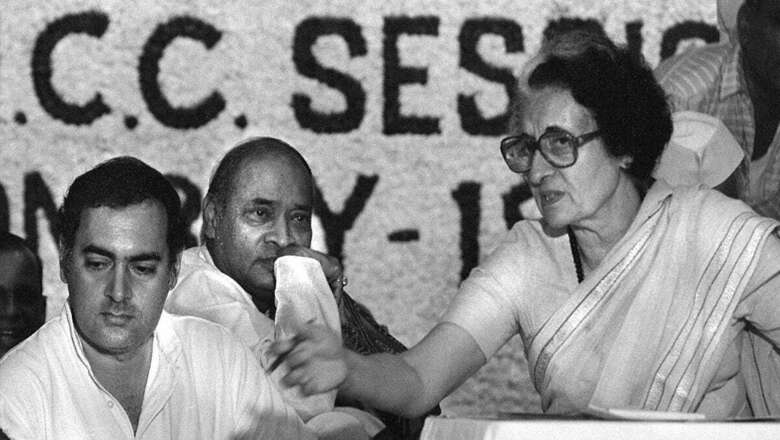
views
The benevolence complex is known to afflict totalitarian demagogues. And so, it was for Indira Gandhi. After having snatched away the civil liberties of a little over 500 million Indians, Mrs G, as she was known, embarked upon the worthy pursuit of cleansing them of their poverty. Convinced of the fairness of the trade-off – liberty for poverty – Indira Gandhi amended the Constitution.
The 76th Amendment was undertaken to inject the word “socialist” into the document. It didn’t matter to Indira Gandhi, that Dr BR Ambedkar, the framer of the Constitution and the beacon of social justice, had expressly warned against injecting adjectives like “socialist” into the Preamble – the philosophical core of the Constitution.
Debating in the Constituent Assembly, Dr BR Ambedkar snubbed fellow member KT Shah who had proposed to inject the word “socialist” into the Constitution. Dr Ambedkar said, “What should be the policy of the State, how the society should be organised in its social and economic side are matters which must be decided by the people themselves according to time and circumstances. It cannot be laid down in the Constitution itself because that is destroying democracy altogether.”
But since the Congress party under Indira had demonstrated little regard for democratic values, Dr Ambedkar’s words, even if they were repeated to Indira Gandhi, would in all probability have had no impact. The Congress party managers in 1977 were convinced that inserting the word “socialist” into the Preamble would add moral ballast to the opportunistic electoral slogan “garibi hatao”. This slogan was designed specifically to whip up popular support for Mrs G ahead of the 1977 Lok Sabha elections. The party was hoping that the impoverished would be so grateful to their “dear leader” for the promise of bequeathments that they would elect her irrespective of the oppression they had faced.
Besides, Indira’s advisors needed the Amendment to give the Congress administration legal cover to ring in policies that would affect the greatest-ever wealth transfer in India’s history.
‘Socialist’ Indira, nationalised MNCs, private banks, and imposed land ceilings and crippling taxes upon the rich. The prevailing inheritance or estate tax was also enhanced. The idea was to take from the rich and give to the poor. But just like wealth redistribution policies had beggared Communist Russia and China, they bled India dry killing entrepreneurialism. It took her political successors, son Rajiv Gandhi and Andhra satrap and PV Narasimha Rao, to liberate India from the smothering embrace of Indira Gandhi’s stifling fiscal fiats.
But even so, the Congress continued to fervently resist any calls to remove through the amendment route the word “socialist” from the Constitution’s guiding paragraph. So it isn’t surprising that now all those years later, the Congress party’s proclaimed ‘mentor’ Sam Pitroda has sought to re-engage with the failed super socialism of that enervating Indira era.
Pitroda thinks that India should relook at the inheritance tax to reduce income inequality. Pitroda’s suggestions neatly align with the goals of the Congress manifesto for the 2024 election that more than hint at wealth redistribution.
The concentration of capital in a few hands is an almost universal problem. That some form of welfarism is needed to reduce the gulf between rich and poor is a given. But making manifesto pledges that when read with Rahul Gandhi’s call for carrying out a financial survey to work out who is entitled to what according to their share of the population and then “ensure” a “revolution” sounds like a plan to launch a direct assault on private wealth.
Ever since liberalisation created the conditions for wealth creation, more and more Indians are buying into the idea. Data on government schemes promoting entrepreneurship substantiate this. The interest is because unlike free benefits showered by the state, wealth creation is an incredibly empowering and emancipating pursuit. It confers dignity.
A liberal democracy’s first principle should be to empower people and not to run their lives.
Views expressed in the above piece are personal and solely that of the author. They do not necessarily reflect News18’s views.




















Comments
0 comment